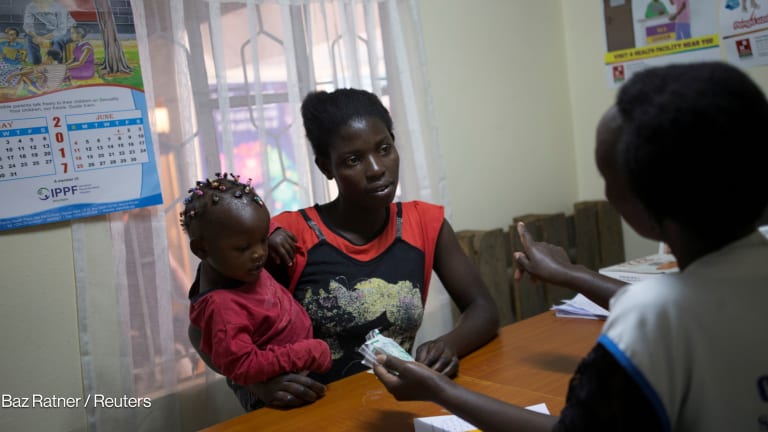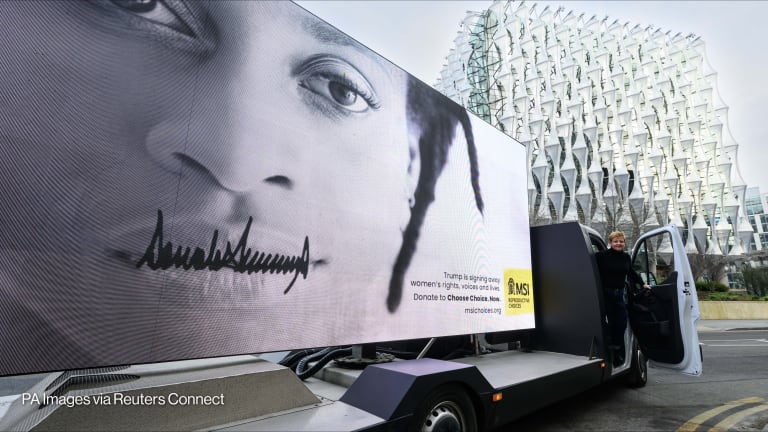
African countries, and those where abortion services are legal, will likely feel the greatest impacts of the United States’ expanded “global gag rule” — also known as the Mexico City Policy — according to new findings by the Kaiser Family Foundation.
The U.S. provided bilateral global health assistance to 64 countries in Fiscal Year 2016, and more than half of them — totaling 34 — were countries in Africa, the American health and policy research non-profit organization reported Thursday.
Meanwhile, 37 of these 64 countries allow for legal abortion, in at least one case that would not be permissible under the Mexico City Policy.
President Donald Trump reinstated and expanded the policy in January, requiring foreign NGOs to certify that they will not “perform or actively promote abortion as a method of family planning” with any funding, including that from the U.S. — or risk all U.S. global health assistance.
About $8 billion in bilateral U.S. global health assistance is at stake with the expansion of the “global gag rule,” which previously was tied to just U.S. family planning funding. But the Trump administration has yet to roll out detailed, expanded guidelines that also put global health assistance on the line.
Trump administration cuts all future US funding to UNFPA
The U.N. Population Fund has attributed the loss of funding from its second largest donor to the false claim that it supports work in coercive abortions and forced sterilizations in China.
“The main take-away from this analysis is that the impact of the Mexico City Policy is potentially far reaching — the policy prohibits legal activities in more than half the countries in which the U.S. government provides bilateral health assistance,” Jennifer Kates, vice president and director of Global Health & HIV Policy at the Kaiser Family Foundation, told Devex.
“So, the extent that a foreign NGO wants to receive U.S. government health funding, they would, at the very least, have to certify compliance with the policy and, in some cases, discontinue legal activities,” she said.
Health providers and other organizations operating in the the 37 U.S.-aid recipient countries where abortion is legal may soon face the pressure of financial constraints to eliminate abortion services, despite the legal freedom they technically have to perform abortions. Yet even in countries where abortion is not legal, U.S.-aid recipients would not be able to provide other services, such as counseling.
“We have been asked by many stakeholders about the reach of this policy, especially given that the policy now applies to so many more foreign NGOs than ever before.”
— Jennifer Kates, vice president and director of Global Health & HIV Policy, Kaiser Family FoundationAbout 90 percent of women of childbearing age in Africa live in countries with restrictive abortion laws. Lack of access to safe abortion can lead to unsafe procedures, which results in complications for an estimated 1.6 million African women each year. While deaths during or after childbirth reduced by almost 50 percent from 1990 to 2015, unsafe abortions remain one of the largest killers for women.
While President Ronald Reagan first introduced the “global gag rule” in 1984, and President George W. Bush subsequently reinstated it, this is the first time that the Kaiser Family Foundation has worked to assess the scope of the policy. Kates led a team over the past few months, scraping public U.S. government data.
“We have been asked by many stakeholders about the reach of this policy, especially given that the policy now applies to so many more foreign NGOs than ever before (because of the expansion by the Trump administration to all of global health),” she wrote in an e-mail to Devex.
“This is especially the case for foreign NGOs in sub-Saharan Africa, since approximately 60 percent of the countries that allow for abortion in at least one instance not permitted by the Mexico City Policy are in this region,” she wrote.
Stay tuned to Devex for more news and analysis of what the Trump administration means for global development. Read more coverage here and subscribe to The Development Newswire.
Search for articles
Most Read
- 1
- 2
- 3
- 4
- 5








